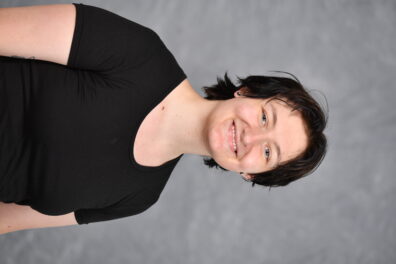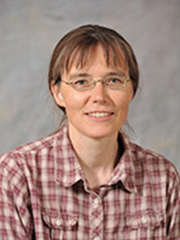Admissions and Procedures
johnstmUndergraduate Student Admission
Certification
A student may certify as a Physics major after completing 30 credits (preferably including Phys 201 and Math 171) with a cumulative gpa of 2.0 or better. A research experience is required of all students as a 499 project, however to gain valuable work experience outside of the University, students are strongly urged to participate in an internship or research experience in industry or a government lab outside of WSU. The summer after the junior year is the most appropriate time for this experience. All students are required to submit an undergraduate thesis to a committee of two Physics faculty members in the senior year. Physics 490 will give credit for this effort. The student must earn a C (2.0) or better grade in each of the “Required Physics Courses”.
Schedule of Studies
Physics – Standard Option (120-124 hours)
| Fall Semester | Hours | Spring Semester | Hours |
| Chem 105 [PSCI] Principles of Chemistry I | 4 | Chem 106 Principles of ChemistryII | 4 |
| Engl 101 [WRTG] | 4 | History 105 [ROOT] | 3 |
| Math 171 Calculus I | 1 | Math 172 Calculus II | 4 |
| Phys 188 First-year Seminar | 3 | Phys 201 or 205 General Physics | 4-5 |
| Social sciences [SSCI] | 3 |
SOPHOMORE YEAR
| Fall Semester | Hours | Spring Semester | Hours |
| Biological sciences [BSCI] | 3 | Creative and professional arts [ARTS] | 3 |
| Math 220 Algebra | 2 | Humanities [HUM] | 3 |
| Math 273 Calculus III | 4 | Math 315 Differential Equations | 3 |
| Phys 202 or 206 General Physics | 4-5 | Phys 304 Modern Physics II | 3 |
| Phys 303 Modern Physics I | 2 | Phys 330 Thermal Physics | 3 |
| Assemble University Writing Portfolio |
JUNIOR YEAR
| Fall semester | Hours | Spring Semester | Hours |
| Computing requirement | 2-4 | Engl 402 [WRTG] Technical Writing | 3 |
| Diversity [DIVR] | 3 | Math elective | 3 |
| Math elective | 3 | Phys 342 Electricity & Magnetism II | 3 |
| Phys 320 Mechanics | 3 | Phys 415 [M] Quantum Lab | 3 |
| Phys 341 Electricity & Magnetism I | 3 | Phys 499 Special Problems | 1 |
| Standard option elective | 3 |
SENIOR YEAR
| Fall Semester | Hours | Spring Semester | Hours |
| Additional [SSCI], [ARTS], or [HUM] | 3 | Capstone [CAPS] | 3 |
| Phys 410 Electronics Lab | 3 | Standard option elective | 9 |
| Phys 450 Quantum Mechanics | 3 | Technical elective | 3 |
| Phys 490 [M] Undergraduate Thesis | 1 | ||
| Standard option elective | 3 | ||
| Technical elective | 3 |
NOTES:
- Computing requirement must be selected from CPTS 121 (4), EE 221 (3), and MATH 300 [M] (2).
- 15 hours of Standard option electives must be taken from PHYSICS 3XX or 4XX, or ASTRONOM 3XX or 4XX.
- Additional [ARTS], [HUM], or [SSCI]: the College of Arts & Sciences requires 3 additional hours of UCORE.
- UCORE = University Common Requirements. Refer to University Graduation Requirements in the WSU catalog.
- Physics majors are recommended to enroll in the Honors sections of General Physics.
- 6 hours of technical electives must include at least 3 hours at the upper division, and be chosen from ASTRONOM, CHEM, MATH, or PHYS.
- For the Standard option, only 3 hours of UCORE [BSCI] biology lecture are required. A 4 hour lecture plus lab may be required for a minor or second major.
- The University Writing Portfolio must be completed shortly after earning 60 credits; transfer students are held to the same requirement.
- Six credit hours of Math 3XX or 4XX are required.
- Phys 499 is a recommended prerequisite for Phys 490.
Physics – Astrophysics Option (120-124 hours)
| Fall Semester | Hours | Spring Semester | Hours |
| Chem 105 [PSCI] Principles of Chemistry I | 4 | Chem 106 Principles of Chemistry II | 4 |
| Math 171 Calculus I | 4 | Math 172 Calculus II | 4 |
| Phys 188 First-year Seminar (only offered Fall semester) | 1 | Phys 201 or 205 General Physics | 4-5 |
| Engl 101 [WRTG] | 3 | History 105 [ROOT] | 3 |
| Social sciences [SSCI] | 3 |
SOPHOMORE YEAR
| Fall Semester | Hours | Spring Semester | Hours |
| Math 220 Algebra | 2 | Math 315 Differential Equations | 3 |
| Math 273 Calculus III | 4 | Phys 304 Modern Physics II | 3 |
| Phys 202 or 206 General Physics | 4-5 | Phys 330 Thermal Physics | 3 |
| Phys 303 Modern Physics I | 2 | Creative and professional arts [ARTS] | 3 |
| Biological sciences [BSCI] | 3 | Humanities [HUM] | 3 |
| Assemble University Writing Portfolio | Astronomy 390 [PSCI] | 1 |
JUNIOR YEAR
| Fall Semester | Hours | Spring Semester | Hours |
| Astronomy 345 Principles (only offered Fall semester) | 3 | Astronomy 435 or 436 Astrophysics (only offered Spring semester) | 3 |
| Computing requirement | 2-4 | English 402 [WRTG] | 3 |
| Math elective | 3 | Math elective | 3 |
| Phys 320 Classical Mechanics | 3 | Phys 342 Electricity & Magnetism II | 3 |
| Phys 341 Electricity & Magnetism I | 3 | Phys 415 [M] Quantum Lab | 3 |
| Phys 499 Special Problems | 1 |
SENIOR YEAR
| Fall Semester | Hours | Spring Semester | Hours |
| Additional [ARTS], [HUM], or [SSCI] | 3 | Astronomy 435 or 436 Astrophysics (only offered Spring semester) | 3 |
| Phys 410 Electronics Lab | 3 | Capstone [CAPS] | 3 |
| Phys 450 Quantum Mechanics | 3 | Diversity [DIVR] | 3 |
| Phys 490 [M] Thesis | 1 | Technical electives | 6 |
| Technical electives | 6 |
NOTES:
- Read the notes to the Standard Option.
- The recommended prerequisite to Astronomy 345 is Phys 303.
- Astronomy 435 is offered in even-numbered years, Astronomy 436 in odd-numbered years. They can be taken in any order.
Physics – Applied Option (120 hours)
First YEAR
| Fall Semester | Hours | Spring Semester | Hours |
| Chem 105 [PSCI] Chemistry I | 4 | Chem 106 Chemistry II | 4 |
| Engl 101 [WRTG] | 3 | Engr 120 | 2 |
| Math 171 Calculus I | 4 | History 105 [ROOT] | 3 |
| MSE 110 Materials Science | 3 | Math 172 Calculus II | 4 |
| Phys 188 First-year Seminar (only offered Fall semester) | 1 | Phys 189 First-year Seminar | 1 |
Second Year
| Fall Semester | Hours | Spring Semester | Hours |
| Econs 101 [SSCI] | 3 | Arts [ARTS] | 3 |
| Math 220 Algebra | 2 | Econs 102 [SSCI] | 3 |
| Math 273 Calculus III | 2 | Math 315 Differential Equations | 3 |
| Phys 201 Physics I | 4 | Phys 202 Physics II | 4 |
| Option elective | 3 | Option elective | 3 |
| Assemble University Writing Portfolio | |||
| Complete College foreign language requirement |
Third YEAR
| Fall Semester | Hours | Spring Semester | Hours |
| Physics 303 Modern 1 | 3 | Bio [BSCI] | 3 |
| Physics 320 Classical Mechanics | 3 | Physics 304 Modern II | 3 |
| Phys 341 E&M I | 3 | Physics 330 Thermal Physics | 3 |
| Stat 360 or 370 | 3 | Phys 342 E&M II | 3 |
| Option Elective | 3 | Physics 499 Special Problems | 1 |
| Option Elective | 3 |
Fourth YEAR
| Fall Semester | Hours | Spring Semester | Hours |
| Technical Writing [WRTG] | 3 | Diversity [DIVR] | 3 |
| Humanities [HUM] | 3 | Capstone [CAPS] | 3 |
| Physics 443 Optics | 3 | Physics 415 [M] Quantum Lab | 3 |
| Physics 450 Quantum Mechanics | 3 | Physics Elective | 3 |
| Physics 490 [M] Thesis | 1 | Option Elective | 3 |
| Option Elective | 3 |
NOTES:
- Read the notes to the Standard Option.The program of courses below is appropriate for students who wish to enter industry upon graduation.
- Option Electives (18 credits): Choose from CE, CPT S, EE, ME, and MSE courses not used to fulfill other
- Physics Electives (3 credits): Choose any 300-400-level ASTRONOM or PHYSICS courses not used to fulfill other requirements.
Minor in Physics
A physics minor requires Phys 201/202 and Phys 303/304 plus any two courses (6 credits) from the following list: Phys 320 Mechanics, Phys 330 Thermal Physics, Phys 341/342 Electricity and Magnetism, Phys 410 Electronics, Phys 412 Modern Optics Laboratory, Phys 415 [M] Modern Laboratory Techniques, Phys 443 Optics, Phys 450 Introduction to Quantum Mechanics, Phys 461 Atomic and Molecular Physics, Phys 463 Solid State Physics, and Phys 465 Nuclear Physics. This makes a total of 20 credits in physics







